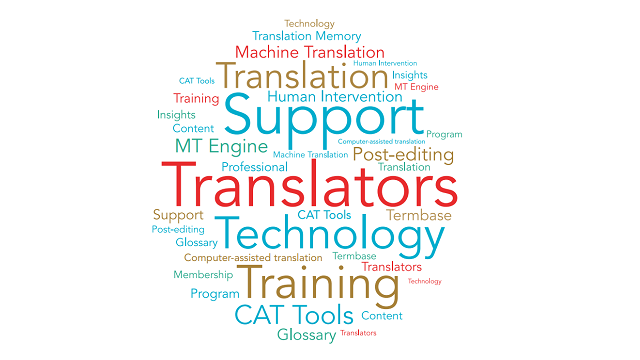-
QUALIFICATIONS
- For Linguists Worldwide
- For UK Public Services
- Preparation
- Policies & Regulation
-
MEMBERSHIP
- Join CIOL
- Membership grades
- NEW for Language Lovers
- Chartered Linguist
- Already a member?
- Professional conduct
- Business & Corporate Partners
-
ASSESSMENTS
- For Second Language Speakers
- English as a Second Language
-
EVENTS & TRAINING
- CPD, Webinars & Training
- CIOL Conference Season 2025
- Events & Networks
- CIOL Mentoring
-
NEWS & VOICES
- News & Voices
- CIOL eNews
- CIOL Awards
- The Linguist
- Jobs & Ads
-
RESOURCES
- For Translators & Interpreters
- For Universities & Students
- Standards & Norms
- CIOL & AI
- All Party Parliamentary Group
- In the UK
- UK Public Services
- Find-a-Linguist
Mentoring and the return to work
 Lots of people need to take periods of time off work to care for their children or, increasingly, a vulnerable parent. In some cases, this can be a significant career break. When someone has had a lengthy break from work it can be more difficult than you might think to restart a career.
Lots of people need to take periods of time off work to care for their children or, increasingly, a vulnerable parent. In some cases, this can be a significant career break. When someone has had a lengthy break from work it can be more difficult than you might think to restart a career.
Yet, people returning to work can have a significant impact on the economy. PWC recently reported that the UK losses £1.7bn per annum by failing to address some of the issues returners face restarting their careers.
Returners to work offer companies huge benefits in terms of the skills and expertise they possess, particularly during a time when the labour market is tight, and these skills and expertise are in short supply.
So, what are we doing to help make the transition back into work as smooth as possible and provide support in overcoming some of the barriers faced in resuming a career? Our mentoring programme is a valuable tool that can be used to help smooth the return to work, ensuring returners can get to grips with their new roles faster and provide that all important support for returners.
There are a few barriers that people returning to work after a career break can face, here are some of the most significant.
Career navigation - as a returner to work, receiving the support of a career mentor can be invaluable. A career mentor will help a mentee reflect on what they are good at and the skills they possess.
Career mentors will have a good insight into the careers and career paths available in their organisation or sector and help a returner navigate appropriate careers and help them plan from application to interview. Having a career mentor can help bolster a returning mentee’s morale, especially during any setbacks that may occur in the early stages of returning to their career.
Low confidence – it’s amazing how quickly we can get out of the swing of things and how daunting it can be to think about returning to performing at the same level at which we left our career.
Mentoring is a great way to support an employee in gaining or increasing their confidence. Mentors can help mentees raise self-esteem and develop a more positive outlook on life by championing the mentee and reinforcing the positive examples they have seen in the
mentee’s skills and behaviour. Mentors can challenge any limitations the mentee feels they have returning to the workforce and help a mentee to increase their self-belief.
Skills gap – when returning to the workplace it can be the case that things have moved on with regards to work processes and technology. As such, a returner may face a gap in their skills and competencies.
Mentors can work with mentees to identify their skills, including skills they may have gained whilst on their career break and profile these against the skills required in the role. Mentors can then plan with their mentee how they will aim to close any gaps that are identified and to capitalise on any new skills.
Work life balance – if someone is returning the workplace following a break where they were caring for a child or relative, they may still have out of work commitments that put pressure on their time and availability. A mentor can help a returning mentee understand the flexibility their workplace can afford them, as well as support a mentee should they feel under pressure in terms of their workload or guilty due to the limited hours they may be able to work.
With the support of a mentor the mentee can lay out their concerns allowing the mentor to impart some guidance on how the mentee can work with their line management to align expectations on when the mentee can work and what they can realistically achieve. This process can help relieve some of the stress and anxiety the returning mentee may be facing and subsequently enhance their performance.
Finally, mentors can help returning mentees broaden their network by making introductions and connecting mentees with other individuals who can help the mentee adjust to their return to work.
If you could benefit from some support in returning to your role or if you feel you could support someone returning to the workplace, then why not sign up to our mentoring programme.
More
The Chartered Institute of Linguists (CIOL), Incorporated by Royal Charter, Registered in England and Wales Number RC 000808 and the IoL Educational Trust (IoLET), trading as CIOL Qualifications, Company limited by Guarantee, Registered in England and Wales Number 04297497 and Registered Charity Number 1090263. CIOL is a not-for-profit organisation.








